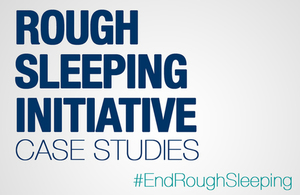Bournemouth: Duty to Refer Co-ordinator
Thanks to rough sleeping initiative funding, Bournemouth council now has a Duty to Refer Co-ordinator who connects ex-offenders to health services.

The local picture
In the 7-week period following the introduction of the duty to refer on 1 October 2018, Bournemouth borough council received 94 referrals from those leaving prison and at risk of rough sleeping.
What’s been done?
Thanks to funding from the rough sleeping initiative, the council now has a Duty to Refer Co-ordinator who acts as a single point of contact for cases that are referred, linking in with prisons and healthcare providers across the area to make sure that referrals are operating effectively.
What’s different?
Specialist Homeless Health GPs in Bournemouth now register offenders 14 days prior to their release from prison. This allows for earlier intervention and a more focused picture of both current and historical health, meaning GPs can have a more meaningful dialogue with prison-based health professionals and, together, help offenders to continue on their path towards rehabilitation.
The result of this is that from release, a clear pathway connects ex-offenders to broader health services which ensures that fewer vulnerable people are being released onto the streets with nowhere to stay.
How the government is tackling rough sleeping
The rough sleeping initiative is a cross-government plan of action to significantly reduce the number of people sleeping rough. This is backed by a targeted £75 million fund for local authorities with high levels of rough sleeping to use in 2018 to 2020.
Alongside this, the government’s rough sleeping strategy and its supporting delivery plan lay out plans both to help people who are sleeping rough now, and to put in place the structures needed to end rough sleeping for good.
On 1 October 2018 the Homeless Reduction Act 2017’s duty to refer came into force. The duty to refer means that certain named public bodies must refer users of their service who they have reason to believe are – or are at risk of soon becoming – homeless, to a local authority of the service users’ choice.